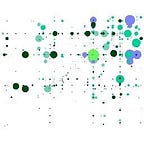A Defense of Rationality in Economics
I am tired of reading about how economics is awful at understanding human behaviour because of its love affair with rational models. People are not computers! Yes, they are not. No one in economics ever said that.
Jeremy Bentham began analyzing human decision making by assuming that people measured the utility of each choice and then picked the choice associated with the highest level of utility. This requires the human mind to work like a computer. This outdated idea DOES NOT form the basis of modern economic models.
Economists start by ignoring why certain items are ranked above each other. The modern theory is descriptive: a person chooses what they like best. Therefore, having observed A being chosen over B, we state that the payoff from A must be higher than B. Notice that this is the opposite direction of causation from Bentham. The approach we take is similar to mathematical biologists who appeal to the fact that evolutionary processes make animal behaviour seem like optimizing, computer-like behaviour. Human beings are also subject to these evolutionary pressures and also learn directly from people around them.
The modern theory of rational agents assumes the following:
- Agents pick what they prefer.
- Agents remain consistent over time, in other words their choices do not contradict themselves.
The first point seems uncontroversial, we all pick what we prefer. Even a saint picks what they prefer, they prefer helping others. Notice that selfishness is not assumed at all. The second point is more opaque. However, a simple example will help what consistency requires.
Imagine you observe Alice making the following choices:
- Items A and B are available. Alice picks A.
- Items B and C are available. Alice picks B.
- Items C and A are available. Alice picks C.
Why are these choices inconsistent? I could rob Alice of all her money. Let’s say Alice owns A. I have B and C and I am willing to trade C with her for an incredibly tiny amount (a fraction of a cent). She will agree to the trade, the amount of money is going to be so small it’s almost a free trade. Alice now owns C and I own B. I now offer to trade B for C for a small fee. We know that she will take B and pay the tiny tiny charge. I now own A and C. I offer to trade A for B, she will agree. Alice is right back where she started but has lost a small amount of money.
Here is the sequence of trades:
A → C → B → A
I can keep doing this until she is broke. Unless she looks into her wallet and realizes that she is being stupid or someone points this out. This argument is known as the money pump argument because Alice is my money pump. Consistency is therefore pretty weak. Alice will realize after the first round that she is being inconsistent and will correct this or evolution will.
This is the theory of rational agents. It is not as stupid as presented by mainstream media.
